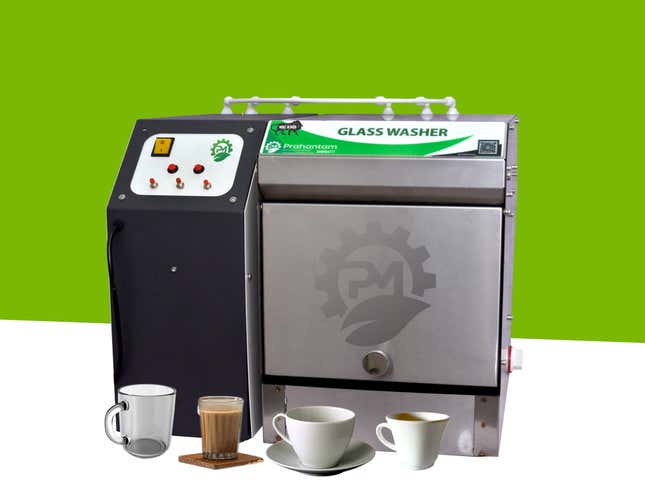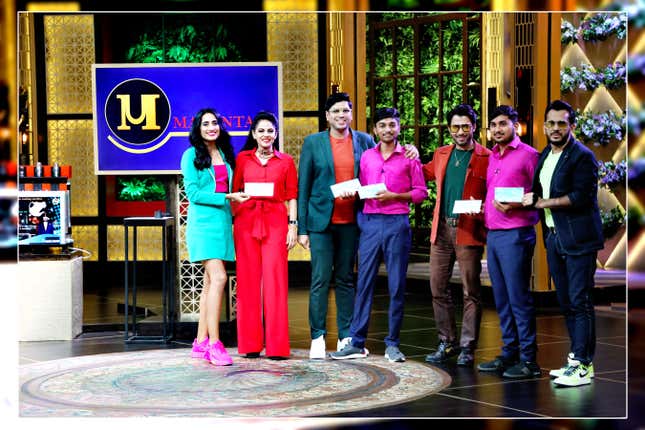[ad_1]
India’s chai tapri (tea kiosk) tradition at bus stops, railway stations, and seemingly each different road nook has persevered for many years, even because the vessels for holding the tea modified from kulhads (mud cups) to glass cups and, extra lately, to paper cups.
Since the covid-19 pandemic particularly, individuals have been cautious concerning the hygiene of reusable glass cups which might be washed by hand. The disposability of paper cups makes them look like a more healthy possibility—however they’re not.
An individual consuming one cup of scorching liquid from plastic-coated paper cups over quarter-hour is ingesting 25,000 microplastics and rising their threat of most cancers, reproductive defects, and neurological problems, in keeping with a 2020 research by Indian Institute of Technology Kharagpur. Plus, the plastic within the coating is “not even a little recyclable, reducible, reusable—nothing,” laments Dhaval Nail, who alongside along with his brother Jayesh Nai is selling the return of glass cups—this time with the stamp of assured hygiene.
As the founders of a brand new firm known as Mahantam, the brothers (Dhaval is 22 and Jayesh 24) have developed an automated glass-washer for India’s tea stall homeowners.

Available in two sizes—1 ft x1 ft and foot 2 ft x 2 ft —Mahantam’s Rs35,000 ($420) totally automated machine washes 9 cups at a time in someplace between twelve and twenty seconds, based mostly on the cycle chosen. There’s additionally a semi-automatic various out there for Rs28,000 ($336).
The brothers, who hail from Dhanera, Gujarat, have thought of all types of potential price and power financial savings, from utilizing pressurized water to save lots of water to constructing a machine that works at simply 12 volts. The similar battery that tea distributors use for a small bulb of their stalls can be utilized for the machine.
From faculty to Shark Tank India to mass manufacturing
Dhaval began prototyping a washer in 2020 as half of a school mission, initially borrowing Rs10,000 ($120) from his professor and mentor. A YouTuber good friend of his shared the creation on-line, and the primary order got here in. After that, Dhaval pitched his concepts to extra professors and gathered 1 lakh rupees ($1,200) to create improved variations.
Many months, prototypes, and three orders later, the duo appeared on Shark Tank in November 2022 and secured an all-shark deal of Rs30 lakh (practically $36,000) for 20% fairness.

To date, the entrepreneurs have given machines to 40 tea stall homeowners throughout Ahmedabad, Mumbai, Pune, Bengaluru, and different Indian cities, to make use of and assessment.
“We are giving [away] machines so we can get proof-of-concept machines that are perfect, and then we can head towards mass production,” Dhaval stated.
[adinserter block=”4″]
[ad_2]
Source link